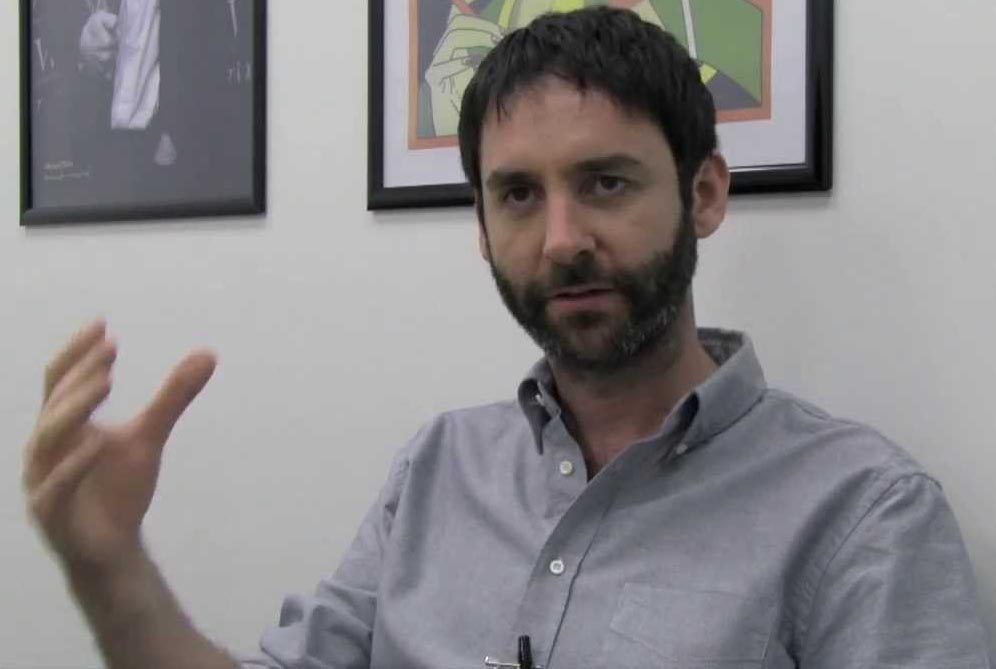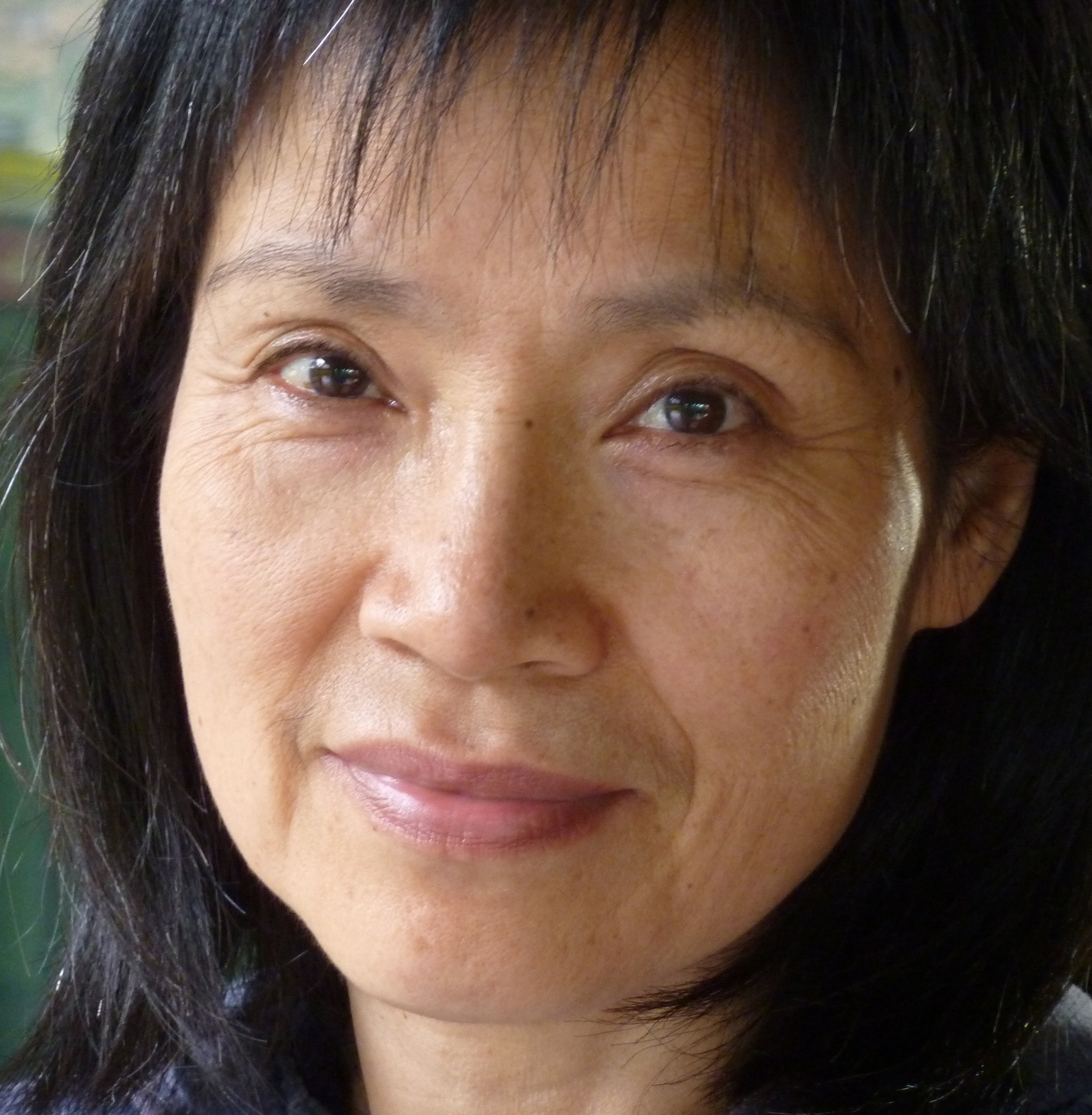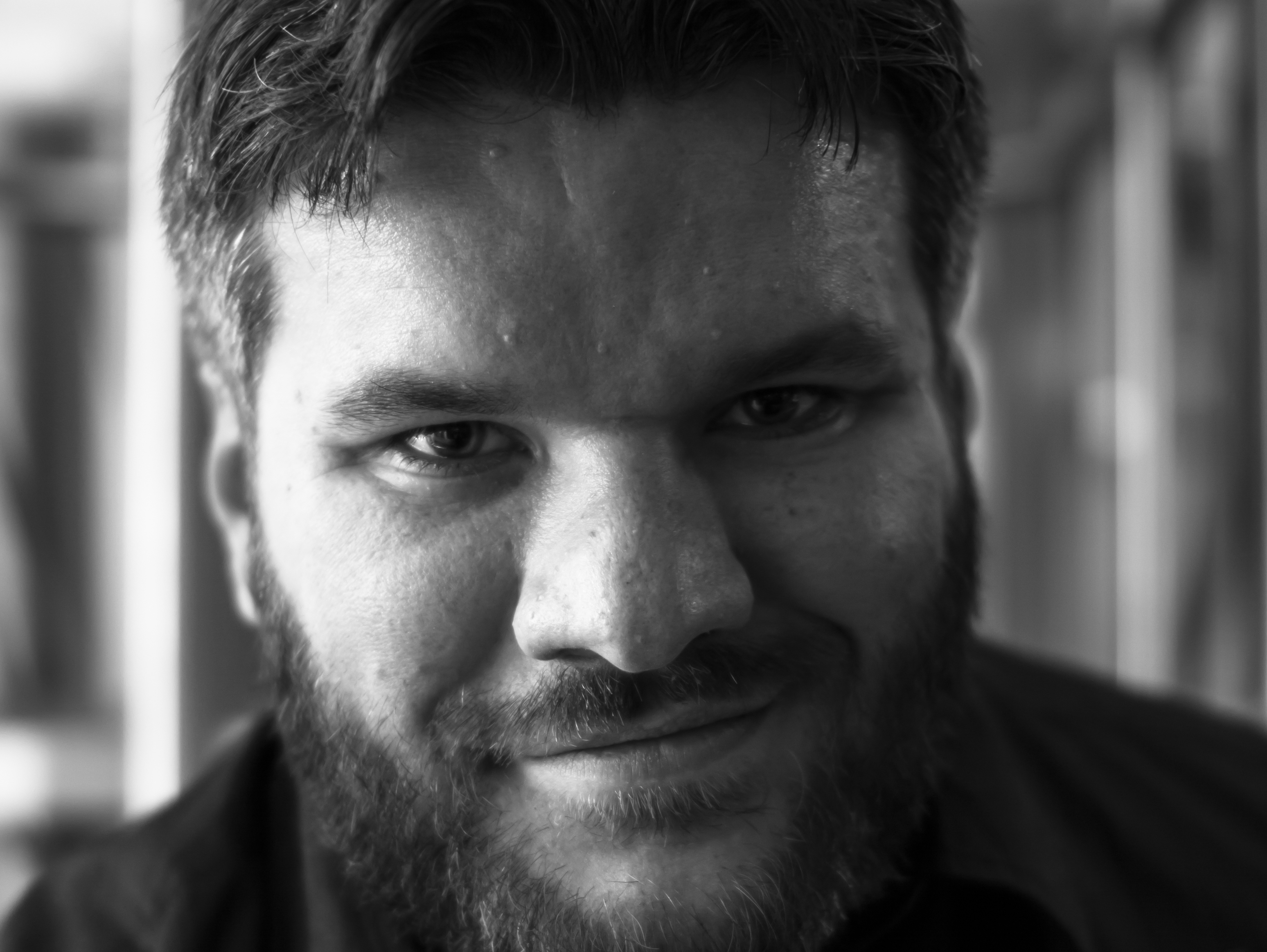Gabriel Roth is most recently the author of The Unknowns.
Listen: Play in new window | Download
Author: Gabriel Roth
Subjects Discussed: Leaving San Francisco for Brooklyn, observing the two dot com booms, how moving away from a city often makes you more aware of its dynamics, the benefits of isolation, National Novel Writing Month, descriptive restaurant cues, the delicate balance between invention and specific representation of a place, writing a character who is “a life support system for feelings of anxiety,” not fronting before other programmers, attempted parallels between programming code and writing prose, anxiety as literary ambiguity, My Little Pony used in flashback, brony culture, how the origins of geekdom become twisted over the course of dissemination, Maya Marcom as a loaded name, vacillating between a Bildungsroman and a social novel in the act of writing, capturing the spirit of being alive during a particular time and place, tips learned from being in an MFA program, the one-time advantages of in-state universities, reading books without understanding the mechanics behind the writing, the amount of work that a writer must do to create a vivid sensory world, systems-thinking reporting vs. the descriptive needs of fiction, the abstract nature of news writing, Bay Guardian philosophy, Bruce B. Brugmann’s “Write while you’re drunk, revise when you’re hungover” catchphrase, alt-weekly professionalism, exploring material that you are already steeped in, writing what you know vs. writing what you don’t know, what your subconscious knows, automatic writing, the revising process, ingesting drugs as a character trait, accounting for the sudden expository twist near the end of The Unknowns, repressed memory, the problems that occur after you’ve fallen in love with someone, maintaining a good-natured feel in a novel after a sexual abuse revelation, humor applied to a broader emotional spectrum, “lad lit,” Benjamin Kunkel, Nick Hornby, the glut of novels about twentysomething white males, whether style is enough to escape white male fiction trappings, judging a book by its flap copy, taking on other voices, The Orphan Master’s Son, why Roth zeroed in on Denver privilege, coming from an educated family, the help that comes from background, Eric’s lack of ideological background, selling personal data to evil corporations, characters who espouse pro-corporate values, the diminishing of principle in San Francisco, the difficulties of combining politics and fiction, the homogeneity of America’s two political cultures, the Iraq War, when people always agree, whether the idea of the overstuffed Great American Novel still applies in 2013, The Adventures of Augie March, Infinite Jest, Rachel Kushner’s The Flamethrowers, critics obliged to fight over Kushner, minituarist vs. maximist fiction, and how to get a TV-obsessed culture hooked on fiction.
EXCERPT FROM SHOW:
Correspondent: I wanted to first of all start off with you leaving San Francisco in 2006. I left in 2007. We both ended up in Brooklyn. And this is one of those interviews. Why didn’t we actually know each other during that decade that we were there? I’m wondering how aware you were that the City was falling apart, was being taken by the Google People, by the private buses. What caused you to flee to Brooklyn? And was this novel in some way a way of reckoning with that?
Roth: Well, I left mostly for personal reasons. I was living with a woman who is now my wife and who was starting a graduate program at Columbia.
Correspondent: Yes.
Roth: And so that was the immediate impetus for me to leave, although I had been in San Francisco for ten years. And as you probably know, ten years is a long time to spend in San Francisco.
Correspondent: I was there for thirteen.
Roth: Yeah. You start to feel that time passing under your feet a little bit. It was not yet clear in 2006 — or at least it wasn’t yet clear to me — what was going to happen with the second Internet boom and what was going to happen with the City as a result of that. I had been there since 1996. And so I had seen the first Internet boom which had sort of effloresced in the late part of the millennium and then died out very quickly in the first years of the oughts. And so I probably would have thought that any new economic activity was going to follow a similar boom and bust pattern. And now it’s not clear that that’s actually what’s going to happen. Or if there is a bust, then the City will have been pretty permanently changed and marked by the boom, it seems like.
Correspondent: Well, it is interesting. Because with the present boom underway, I remember the first one and that seemed brutal at the time. And I was very fortunate to have an apartment in which the rent had not gone up, as were many of my friends. And we somehow managed to secure apartments. Now I’m hearing reports from friends who are basically cleaving to their apartments, hoping that their building won’t be taken over and so forth. And I guess my tangent here was, if you weren’t entirely aware, does moving away from San Francisco and writing a novel actually allow you to think “Wow! All this was going on and, as shred as I was, I really wasn’t paying attention”?
Roth: Yeah. There is a certain amount of that obviously. I began the novel and I had gotten a good two thirds of the way into a draft by the time I left San Francisco. So a lot of the scenarios and the physical environment that I was describing was what was immediately around me as I was doing that first stage of writing. And then moving away — and I think this is probably true in general for writers — the act of writing is often, I think, an act of recapturing and of preserving your memories. Sort of freezing them in sentences. And I think it worked that way for me partly about the City of San Francisco and the environment around the first dot com boom, but then also about a time in my life. And of course, it’s very difficult to separate the place that you were in your early twenties from the experience of being in your early twenties.
Correspondent: Well, how so? Can you elaborate on that? It almost seems like you’re kind of mining through your own data and trying to separate it into emotion and tangible information.
Roth: Yeah. That’s absolutely right. I mean, the book is in part about San Francisco and about people working in technology and about collecting data. But then it’s also about a young man who’s preoccupied with looking for love and finding someone to be intimate with and close to. And it’s not an autobiographical book and the characters aren’t the same person as me. But that experience of being in my early twenties and really wanting to figure out how to love somebody and be loved by somebody — I was preoccupied with that for a long time. And those experiences, along with the experiences of the social world of San Francisco, are what went into the book and what got filtered through the fiction writing process and into the novel. And so there’s no way that I can say, “Oh yes. This is just a sort of satirical or an observational portrait of a little microcosm of the world.” Because it’s all wrapped up with my own subjective experience.
Correspondent: So you had two thirds of a draft before you moved here to Brooklyn. What did moving to Brooklyn produce in terms of clarity for both Eric [protagonist of The Unknowns] and for the view of San Francisco that you had?
Roth: Well, let’s see. Around the time that I moved out here, you know, I finished the MFA program at San Francisco State. I had a bunch of chapters. I was trying to figure out — I knew where the book was going to go, but I was trying to stick the landing, which is not straightforward and I think is not usually straightforward when writing a novel. And then we moved out here. And we were in our early thirties — mid-thirties even — and it was no longer a time when I would have moved to Brooklyn and gone out drinking every night or made a whole bunch of new friends. Or I wasn’t going to go out on dates. Because I was living with my girlfriend. And so moving to New York, which for many people is like stepping onto the big stage — for me, that was the time where I was a bit more isolated and I was going to work every day and getting my pages done and then coming home and eating dinner with my wife. And I think that was important in terms of finishing the thing.
Correspondent: So the isolation allowed you to finish the book.
Roth: Yeah.
Correspondent: It allowed you to come to terms with and put aside this particular part of yourself in your twenties.
Roth: Yeah. I think that’s right. It was putting a clean break on what I had been doing and what I was going to be starting to do from now on.
Correspondent: Did you have any other novels before this? I was curious.
Roth: Not that you would actually call a novel. I had like a pile of pages that I had written during National Novel Writing Month in 2003. Or something like that. That added to nothing but a pile of pages.
Correspondent: I think I remember reading one of your Bay Guardian columns. I think you wrote about it in the Bay Guardian, writing for the National Novel Writing Month.
Roth: I probably did.
Correspondent: Yeah, I remember that. I was a loyal Bay Guardian reader when I lived there. So that was you. You describe “a medium-expensive neo-Cuban restaurant with the kind of deserts that have names evocative of Catholicism” near Lazarus, your invented Valencia Street bar, which clearly evokes Cha Cha Cha. You have the photographs of tailfinned cars, which are sort of like Mel’s Drive-In, but not quite. Fiction — this is not reality. Imagination should be encouraged. But this does lead me to ask you about creating a believable San Francisco for this book. Obviously, you have to rely on things that actually exist. But are there any dangers in being too specific when you’re creating a sense of place like this? I mean, it seems that you want to alert people like me who have in fact passed and entered into Cha Cha Cha that this is indeed the San Francisco of that era. But I was curious about that fine line between telegraphing exactly what it is and just making shit up.
Roth: Yeah. I mean, I think the main issue you’re talking about is with the restaurants. Frankly, there’s a lot of restaurants. And most of the restaurants, as you point out, if you were going out to eat in the Mission in the early part of the 21st century, you’ve probably eaten in some of those restaurants. I didn’t worry about that. And I guess I think that’s fine. And if you’re reading it and you’re in the small subset of people who are going to recognize those restaurants, then hopefully that’s a sort of pleasant moment of recognition for you. Maybe it’s distracting, in which case my bad. But most people are not going to fall in that category. And I think without some amount of specificity, whether its based on real life’s specificity or completely fantastic specificity, without that, then it just becomes a generic restaurant. And the whole thing sort of looks flat. Putting in detail — in this case, often detail borrowed from actual restaurants where I ate most of my meals during the ten years I lived in San Francisco — putting in that detail hopefully gives the feeling of something that takes place in a real world that’s fully stocked with all the stuff of the real world.
Correspondent: But it is your world. It is Eric’s world. And I guess my question is not so much, “Ah! I’m going to go through The Unknowns and cut and paste all those phrases and put them on Yelp.” That’s not what I’m talking about.
Roth: (laughs)
Correspondent: What I am talking about is the idea that this is fiction. It does require invention. It is not going to be a pure 100% depiction of San Francisco. So where do you deviate between that specificity and just inventing something that doesn’t exist but is real enough for the reader to believe, whether the reader be from San Francisco or the reader be from somewhere else?
Roth: Yeah. I mean, really, it depends on the needs of the particular paragraph. You know what I mean? And what comes to my mind as I’m writing it. If, let’s say again, there’s a restaurant where I’m sending the two characters and I need to envision it, you know how sometimes in your dreams or your fantasies, sometimes there will be a place that doesn’t really exist. And sometimes all of the events will transpire in a place that does exist, but those things never happen there. Or it’s a place that does exist, only now they’re serving vegetarian food instead of Mexican food. And writing a novel seems to me exactly the same process. That you borrow these elements from the real world, but unless you’re writing a novel that’s just a direct transposition of real life — which this certainly isn’t — the filtering process is going to transform it to whatever degree is necessary.
Correspondent: So Eric describes himself to Maya as “a life support system for feelings of anxiety. The anxiety is the organism and I am the habitat.” Yet he tells his story in this book much like a programmer, almost as if he’s writing clean lines of code. The habitat of this book may indeed describe anxieties, but it seems like it’s reliant more upon nouns and adjectives rather than verbs. And I was curious about this. Did you impose any kind of stylistic ordinance upon your character to push his anxieties beneath the text? I mean, verbs are certainly the way that we absolutely spill out our emotion. And yet he seems to not use them as such. I’m wondering if this was something you were conscious of or whether it was designed or emerged through revision or what not.
Roth: That’s interesting. I certainly don’t, when I’m writing, think in terms of parts of speech like that. I’m not a sufficiently programmatic writer to be able to do that. I don’t think it would help me. I’m sure there’s some people for whom that would be a useful way to think about things. I do think — and the sentence that you quote is a good example of this — you know, he’s out on a date with this girl and she says to him — he says something that seems uptight or anxious and she says, “Do you consider yourself an anxious person?” And he says, “I consider myself a life support system for anxieties. The anxiety is the organism and I’m the habitat.” And on one hand, to some extent, that’s an accurate description. But on the other hand, hopefully on a date, that’s the clever thing to say. That’s sort of witty and self-deprecating, but also a self-revealing thing to say to a girl who you’re trying to make fall in love with you. And rather than imposing a restriction on Eric’s speech, I think of that character as being both messed up in all of these ways and having these real psychological difficulties, making life really difficult for him, and at the same time being to some useful degree self-aware about that and able to talk about and, as in that example, able to present it and able to sublimate it into a self-presentation that hopefully is a little charming and a little attractive and that Maya at least responds to. And hopefully, to some extent, the reader will respond to it in that way as well. He is an anxious person and he is a self-conscious person and yet his self-awareness about those things enables him to defuse their effects a little bit.
(Loops for this program provided by Dj4Real, chefboydee, and hamood.)
The Bat Segundo Show #508: Gabriel Roth (Download MP3)




